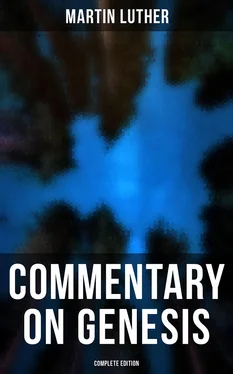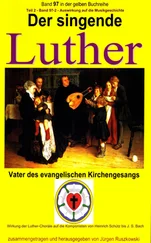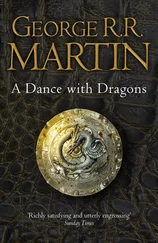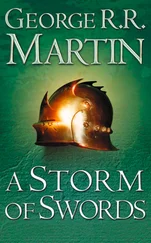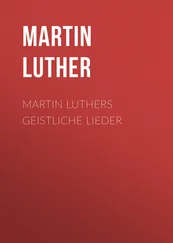Martin Luther - Commentary on Genesis (Complete Edition)
Здесь есть возможность читать онлайн «Martin Luther - Commentary on Genesis (Complete Edition)» — ознакомительный отрывок электронной книги совершенно бесплатно, а после прочтения отрывка купить полную версию. В некоторых случаях можно слушать аудио, скачать через торрент в формате fb2 и присутствует краткое содержание. Жанр: unrecognised, на английском языке. Описание произведения, (предисловие) а так же отзывы посетителей доступны на портале библиотеки ЛибКат.
- Название:Commentary on Genesis (Complete Edition)
- Автор:
- Жанр:
- Год:неизвестен
- ISBN:нет данных
- Рейтинг книги:4 / 5. Голосов: 1
-
Избранное:Добавить в избранное
- Отзывы:
-
Ваша оценка:
- 80
- 1
- 2
- 3
- 4
- 5
Commentary on Genesis (Complete Edition): краткое содержание, описание и аннотация
Предлагаем к чтению аннотацию, описание, краткое содержание или предисловие (зависит от того, что написал сам автор книги «Commentary on Genesis (Complete Edition)»). Если вы не нашли необходимую информацию о книге — напишите в комментариях, мы постараемся отыскать её.
Commentary on Genesis is the last work of Martin Luther, written during the last several years of his life. Luther's work follows the first volume of Psalms with critical and devotional remarks on the creation and on sin and the flood.
Commentary on Genesis (Complete Edition) — читать онлайн ознакомительный отрывок
Ниже представлен текст книги, разбитый по страницам. Система сохранения места последней прочитанной страницы, позволяет с удобством читать онлайн бесплатно книгу «Commentary on Genesis (Complete Edition)», без необходимости каждый раз заново искать на чём Вы остановились. Поставьте закладку, и сможете в любой момент перейти на страницу, на которой закончили чтение.
Интервал:
Закладка:
Wherefore we are by no means to suppose that the original source of the rivers, of which we are now speaking, was the same as it is today. But as the earth still exists and brings forth trees and their fruits, etc., and yet these, if compared with those in their original and incorrupt state, are but miserable remnants as it were of those former riches which the earth produced when first created, so these rivers remain as relics only of those former noble streams; but certainly not in their primitive position; much less flowing from their original sources. In the same manner, how much excellency has perished from our bodies by sin! Wherefore the sum of the matter under discussion is that we must speak of the whole nature since its corruption, as an entirely altered face of things; a face which nature has assumed, first by means of sin, and secondly by the awful effects of the universal Deluge.
Nor has God ceased to act still in the same way. When he punishes sins he still curses at the same time the earth also. Thus in the prophet Zephaniah, God threatens that he will consume the fowls of the air and the fishes of the sea, Zeph. 1:3. Hence the fact is that many of our rivers have in this age a far less number of fishes than in the memory of our forefathers. The birds also are much fewer in number than they once were, etc. God threatens also, Is. 13, that He will punish in this same way the sins of Babylon. For when men are taken away by God's judgments the beasts of the earth also disappear and monsters and destroying wild beasts alone remain, Is. 13:21, 22. For example Canaan was one of the most fruitful lands; but now it is said to be as it were a mere pickle-tub of unfruitful saltness, according to the divine threatening in the 107th Psalm. If then such calamities are inflicted of God as the punishments of the particular sins of nations, what destructions and desolations must we consider the universal punishment of the Flood to have wrought?
Let no one be offended therefore at Moses saying that four rivers, which are at this day widely distant from each other and have now different fountains, flowed from one source in the garden of Eden. For as I have here repeatedly observed we are not to think that the form of the world now is the same as it was before the sin of Adam. Origen was indeed of this opinion himself, and yet he turned aside to the vainest allegories.
The Nile indeed exists to this day, so does the Ganges. But as Virgil says concerning the destruction of Troy, "A cornfield now flourishes where Troy once stood," so if any one had seen the Nile and the other great rivers mentioned by Moses in their primitive beauty and glory he would have beheld them to be far different from what they are now. For not only are their sources altered, but their qualities and their courses are also changed; just as all other creatures are also deformed and corrupted. Hence it is that Peter affirms "That the heaven must receive Christ until the times of the restitution of all things," Acts 3:21. For Peter here intimates, that which Paul also testifies, that the whole creation was subjected to vanity, Rom. 8:20, and that the restitution of all things is to be hoped for; the restitution not of man only, but of the heaven and the earth, of the sun and of the moon, etc.
My answer therefore to all questioners upon the passage before us is: There is the Nile, there is the Ganges and there are other rivers still in existence; but they are not now such as they once were; they are not only confounded with respect to their sources, but altered as to their qualities also. In the same manner also man has indeed feet, eyes and ears, just as they were created and formed in paradise; but all these same members are miserably corrupted and marred by sin. Adam before his sin had eyes the most bright, a smell of body the most pure, refined, delicate and grateful; a body the most perfectly adapted to generation and to every purpose intended of God without the least let, hindrance or obstruction in the performance of those purposes as services in obedience to God. But how far removed from all this aptitude, this service and this natural vigor are all our members now! Just the same is the present nature of these rivers and of the whole creation if compared with its original state and condition.
Let us look therefore in hope and faith for the "restitution of all things;" not of the soul only, but of the body also; believing that we shall have in that day a body better and more noble even than it was when first created in paradise. For we shall not then be placed in a state of animal life, subject by its nature to alteration and change; but in the state and enjoyment of a spiritual life; that life, into which Adam would have been translated, if he had lived without sin. Into the hope of this life Christ brings us by the remission of sins; and thereby makes our condition better and higher than Adam enjoyed, but lost in paradise.
The Hebrew verb SAB, which Moses here uses, has a very extensive meaning; it signifies "to go round," as watchmen go their round in a city. Pishon, therefore, or the Ganges is still in existence, if you speak of its mere name and stream; but if you consider its fertilizing and fructifying qualities, its various other properties and the course of its waters, even the remnants of the original noble river are not to be found.
The land of Havilah is India, situated towards the east. This country is celebrated both in the present passage and in other places in the Scripture as most rich and abundant in every respect. So that at this day the gems and the gold of India are considered the most precious and most noble. I believe however, according to the phraseology here adopted by Moses, that in "the land of Havilah" is included Arabia Felix and other adjacent regions.
When Moses speaks of bdellium and the onyx stone, I take these specimens of gems for gems in general. For we find India to abound even at the present day, not only in jewels of the description mentioned, but in emeralds, sapphires, rubies, garnets, diamonds, etc.; for I retain their appellations as they are now used among us. But here again I would bring back your attention to that which I have before stated. Seeing that this region is endowed from above with such a rich abundance of all things useful and precious; how much more rich, abundant, opulent and divinely favored must we conclude it to have been in its original state before the sin of the fall! Its present productions and contents can scarcely be called even remnants of its former excellency.
Vs. 13, 14. And the name of the second river is Gihon; the same is it which compasseth the whole land of Cush. And the name of the third river is Hiddekel; that is it which goeth toward the east of Assyria. And the fourth river is the Euphrates.
Moses mentions the three remaining rivers by name only, giving no particular descriptions in reference to them. Gihon is the Nile. This river, as it runs through all Egypt, takes in its course, Cush or Ethiopia also, as well as Egypt. Hiddekel is the Tigris (in Armenia), the most rapid river of all. "The fourth is the river Euphrates." As if he had added, the river near to us.
In this passage therefore we have a description of paradise with its four rivers. But now it is utterly lost and unknown; and no traces of it exist except these four rivers. And even these, first rendered leprous as it were and corrupted and marred by sin; and then changed, altered and confounded in their sources and in their courses by the mighty Deluge.
Moses now proceeds to describe how a law was given to Adam before Eve was created, so that he might have a mode or form of external worship, by which to show his obedience and express his gratitude to God.
Конец ознакомительного фрагмента.
Текст предоставлен ООО «ЛитРес».
Читать дальшеИнтервал:
Закладка:
Похожие книги на «Commentary on Genesis (Complete Edition)»
Представляем Вашему вниманию похожие книги на «Commentary on Genesis (Complete Edition)» списком для выбора. Мы отобрали схожую по названию и смыслу литературу в надежде предоставить читателям больше вариантов отыскать новые, интересные, ещё непрочитанные произведения.
Обсуждение, отзывы о книге «Commentary on Genesis (Complete Edition)» и просто собственные мнения читателей. Оставьте ваши комментарии, напишите, что Вы думаете о произведении, его смысле или главных героях. Укажите что конкретно понравилось, а что нет, и почему Вы так считаете.
